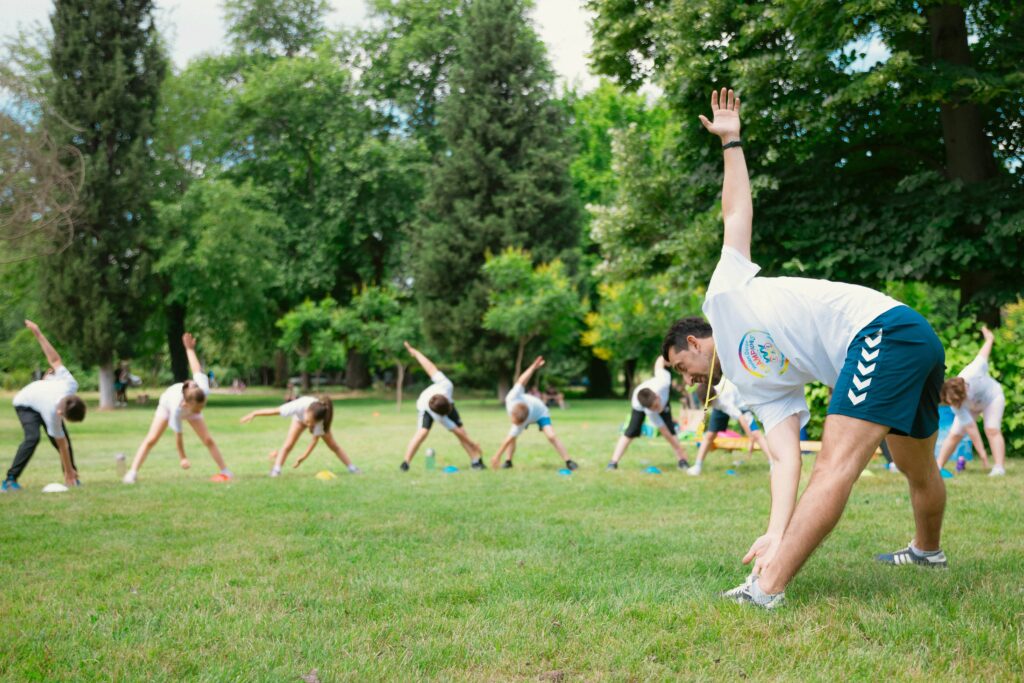Now Reading: Explore How Virtual Addiction Support Groups Provide Connection, Guidance, and Recovery Tools, Helping Individuals Heal Anytime, Anywhere with Real Support
-
01
Explore How Virtual Addiction Support Groups Provide Connection, Guidance, and Recovery Tools, Helping Individuals Heal Anytime, Anywhere with Real Support
Explore How Virtual Addiction Support Groups Provide Connection, Guidance, and Recovery Tools, Helping Individuals Heal Anytime, Anywhere with Real Support

Recovery is not something anyone should face alone. Whether you’re in early recovery or have years of sobriety behind you, having a support system matters. But what if you can’t attend an in-person meeting or live in a place where help is hard to find?
That’s where virtual addiction support groups come in.
These online communities offer the same compassion, connection, and accountability as in-person groups—sometimes even more. From 24/7 chat rooms to scheduled Zoom meetings, virtual support has made recovery more accessible than ever.
This article explores how virtual addiction support groups are helping people heal from addiction—anytime, anywhere.
What Are Virtual Addiction Support Groups?
Virtual addiction support groups are online meetings or forums where people in recovery come together to share experiences, offer encouragement, and discuss challenges. These groups may meet via video calls, messaging platforms, or dedicated recovery apps.
Some are peer-led, while others are guided by licensed therapists or trained facilitators. Many follow well-known recovery models such as:
- 12-step programs (e.g., Alcoholics Anonymous, Narcotics Anonymous)
- SMART Recovery (Self-Management and Recovery Training)
- LifeRing or Celebrate Recovery
- Refuge Recovery, a mindfulness-based option
These groups focus on honesty, connection, and progress—helping people stay sober one day at a time.
The Rise of Virtual Support in Addiction Recovery
During the COVID-19 pandemic, virtual support became a lifeline for millions. Lockdowns forced traditional recovery programs to adapt quickly. As a result, people discovered that online support could be just as powerful as meeting in person.
According to a 2021 survey by the Substance Abuse and Mental Health Services Administration (SAMHSA), nearly 60% of people in recovery attended at least one virtual support group during the pandemic, and many continued even after restrictions were lifted 1.
The flexibility and accessibility of virtual support opened doors for people who previously struggled to attend physical meetings.
How Virtual Addiction Support Groups Help in Recovery
1. Provide Real-Time Connection
Addiction thrives in isolation. Recovery thrives in community.
Virtual addiction support groups help break that isolation by connecting individuals with others who understand their struggles. These online spaces offer a non-judgmental environment to:
- Share personal experiences
- Ask for help during cravings
- Celebrate milestones
- Feel heard and seen
Even a 30-minute virtual check-in can prevent a relapse. Knowing someone is just a click away can make a huge difference during high-stress moments.
2. Offer Flexible, 24/7 Support
Life doesn’t always follow a schedule. That’s why virtual groups are so powerful. You don’t need to drive anywhere, arrange childcare, or take time off work. You can log in from your phone, tablet, or laptop whenever you need support.
Many platforms offer:
- On-demand meetings
- 24/7 chat forums
- Daily check-in calls
- Text-based support rooms
This around-the-clock access is especially helpful for people in early recovery, who may face cravings or emotional triggers at unexpected times.

3. Reach Underserved Communitie
People in rural areas, those without transportation, or individuals with health challenges often can’t attend in-person meetings. Virtual support removes those barriers.
One study from Addiction Science & Clinical Practice found that online recovery support increased participation among people in underserved communities by 42% compared to in-person options 2.
Virtual support helps bridge the gap between need and access—especially for those who previously felt left out.
4. Promote Anonymity and Comfort
Not everyone feels comfortable walking into a physical meeting space. Shame, stigma, or social anxiety can keep people away from recovery groups.
Virtual addiction support groups allow individuals to:
- Join anonymously or with a screen name
- Keep their camera off, if preferred
- Listen silently until they feel ready to share
This added layer of privacy can ease anxiety and encourage more people to take the first step.
5. Provide Structure and Accountability
Sticking to a recovery plan can be tough. Virtual groups help by offering structure and encouraging routine.
Attending daily or weekly meetings creates consistency. Many groups include:
- Goal setting
- Daily affirmations
- Peer check-ins
- Progress tracking
This level of accountability helps people stay committed to sobriety—even when life gets hard.
Real-Life Story: Finding Strength Online
Derek, 41, had been in and out of rehab for years. He lived in a remote area and struggled to access in-person help.
“I felt like I was the only one going through it. I found an online SMART Recovery group during lockdown, and it changed my life. I could log in whenever I needed to. People listened without judging me. I finally felt like I wasn’t alone.”
Derek’s story reflects what so many have discovered—virtual addiction support groups create real human connection in a digital space.
Best Platforms Offering Virtual Support
Here are a few trusted platforms offering virtual addiction support:
- Alcoholics Anonymous (AA): Online Intergroup has daily Zoom meetings worldwide.
- SMART Recovery: Offers structured tools, worksheets, and live meetings.
- In the Rooms: A large online recovery community with over 150 virtual meetings weekly.
- Loosid: A sober social app that combines community, dating, and support.
- Reddit – r/stopdrinking: A peer-led forum with over 400,000 members sharing daily support.
Each platform offers different styles and tools—what matters is finding what works for you.
Tips for Getting the Most from Virtual Support
- Create a quiet space: Eliminate distractions so you can focus and feel safe.
- Stay consistent: Attend meetings regularly to build connection and routine.
- Be open: Share when you’re ready—but remember that listening is also healing.
- Use chat features: If speaking feels hard, use text-based support instead.
- Bookmark resources: Save links, meditation tools, and coping strategies shared in meetings.
Final Thoughts: Real Support, Anytime, Anywhere
Virtual addiction support groups are transforming how people experience recovery. They remove physical and emotional barriers while creating meaningful, lasting connections.
Whether you’re newly sober or have been on this path for a while, these groups offer compassion, structure, and tools to help you stay grounded—wherever you are.
In a world that’s always moving, it’s comforting to know you can pause, log in, and find support in the palm of your hand.
Because healing doesn’t happen in isolation. It happens in community—and now, that community is just a click away.
Sources
- SAMHSA. (2021). COVID-19 and Virtual Recovery Support ↩
- Bender, K. A., et al. (2020). Virtual recovery communities and accessibility. Addiction Science & Clinical Practice. ↩

Kevin Fletcher is a seasoned writer with over 10 years of experience crafting engaging and informative content in the health, fitness, and wellness industries. Passionate about helping readers live healthier lives, Kevin combines research-backed insights with practical tips to inspire positive change.

























